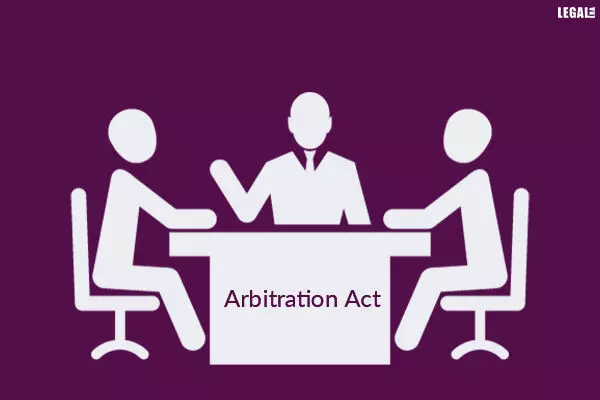- Home
- News
- Articles+
- Aerospace
- Agriculture
- Alternate Dispute Resolution
- Banking and Finance
- Bankruptcy
- Book Review
- Bribery & Corruption
- Commercial Litigation
- Competition Law
- Conference Reports
- Consumer Products
- Contract
- Corporate Governance
- Corporate Law
- Covid-19
- Cryptocurrency
- Cybersecurity
- Data Protection
- Defence
- Digital Economy
- E-commerce
- Employment Law
- Energy and Natural Resources
- Entertainment and Sports Law
- Environmental Law
- FDI
- Food and Beverage
- Health Care
- IBC Diaries
- Insurance Law
- Intellectual Property
- International Law
- Know the Law
- Labour Laws
- Litigation
- Litigation Funding
- Manufacturing
- Mergers & Acquisitions
- NFTs
- Privacy
- Private Equity
- Project Finance
- Real Estate
- Risk and Compliance
- Technology Media and Telecom
- Tributes
- Zoom In
- Take On Board
- In Focus
- Law & Policy and Regulation
- IP & Tech Era
- Viewpoint
- Arbitration & Mediation
- Tax
- Student Corner
- AI
- ESG
- Gaming
- Inclusion & Diversity
- Law Firms
- In-House
- Rankings
- E-Magazine
- Legal Era TV
- Events
- News
- Articles
- Aerospace
- Agriculture
- Alternate Dispute Resolution
- Banking and Finance
- Bankruptcy
- Book Review
- Bribery & Corruption
- Commercial Litigation
- Competition Law
- Conference Reports
- Consumer Products
- Contract
- Corporate Governance
- Corporate Law
- Covid-19
- Cryptocurrency
- Cybersecurity
- Data Protection
- Defence
- Digital Economy
- E-commerce
- Employment Law
- Energy and Natural Resources
- Entertainment and Sports Law
- Environmental Law
- FDI
- Food and Beverage
- Health Care
- IBC Diaries
- Insurance Law
- Intellectual Property
- International Law
- Know the Law
- Labour Laws
- Litigation
- Litigation Funding
- Manufacturing
- Mergers & Acquisitions
- NFTs
- Privacy
- Private Equity
- Project Finance
- Real Estate
- Risk and Compliance
- Technology Media and Telecom
- Tributes
- Zoom In
- Take On Board
- In Focus
- Law & Policy and Regulation
- IP & Tech Era
- Viewpoint
- Arbitration & Mediation
- Tax
- Student Corner
- AI
- ESG
- Gaming
- Inclusion & Diversity
- Law Firms
- In-House
- Rankings
- E-Magazine
- Legal Era TV
- Events
Requirement under Section 21 of Arbitration Act must be complied with: Calcutta High Court

Requirement under Section 21 of Arbitration Act must be complied with: Calcutta High Court
In an application under Section 11 of the Arbitration and Conciliation Act, 1996 (Arbitration Act) to appoint the sole arbitrator for resolving the dispute between the petitioners and the respondents, the Calcutta High Court held that since the requirement of Section 21 of the Arbitration Act in giving due notice to the respondent invoking the arbitration clause had not been complied with, the application was liable to be dismissed for being premature.
The facts of the case were that the parties in the present suit entered into a coal mining agreement which contained an arbitration clause providing for reference of any dispute not resolved amicably by conciliation to an arbitral tribunal with the arbitrator being appointed by the Additional Chief Secretary or the Principal Secretary to the Government of West Bengal, Department of Power and Non-Conventional Energy Sources.
Subsequently, a dispute arose between the parties and as a result an arbitrator was appointed as per the arbitration clause. However, the appointment of the arbitrator was challenged before the Commercial Court and accordingly the said appointment was terminated. Aggrieved by the termination, the petitioners filed the present application under Section 11 of the Arbitration Act before the Calcutta High Court.
The respondents challenged the application under Section 11 and argued that since no notice making a request to the respondents was issued for appointment of an arbitrator, the application under Section 11 of the Arbitration Act was not maintainable.
In light of the facts and submissions placed on record, the Court ruled in favour of the respondents and dismissed the application under Section 11 of the Arbitration Act. The Court held that as per Section 21 of the Arbitration Act, arbitral proceedings in respect of a particular dispute commence on the date on which a request for that dispute to be referred to arbitration is received by the respondent, unless otherwise agreed by the parties. Since no notice was given to the respondents in this case, the requirement of Section 21 had not been met, making the application under Section 11 premature.
The High Court added that it is only when the parties fail to appoint the sole arbitrator with consent within the stipulated time after notice has been served to the respondents, that the applicant can approach this Court with appropriate prayer under Section 11 of the Arbitration Act, and not before that.
The Calcutta High Court relied on the Delhi High Court decision in Alupro Building Systems Private Limited v. Ozone Overseas Private Limited, 2017 SCC OnLine Del 7228, a decision subsequently also followed by the Bombay High Court in Malvika Rajnikant Mehta and Others v. JESS Construction, to reach its finding.



